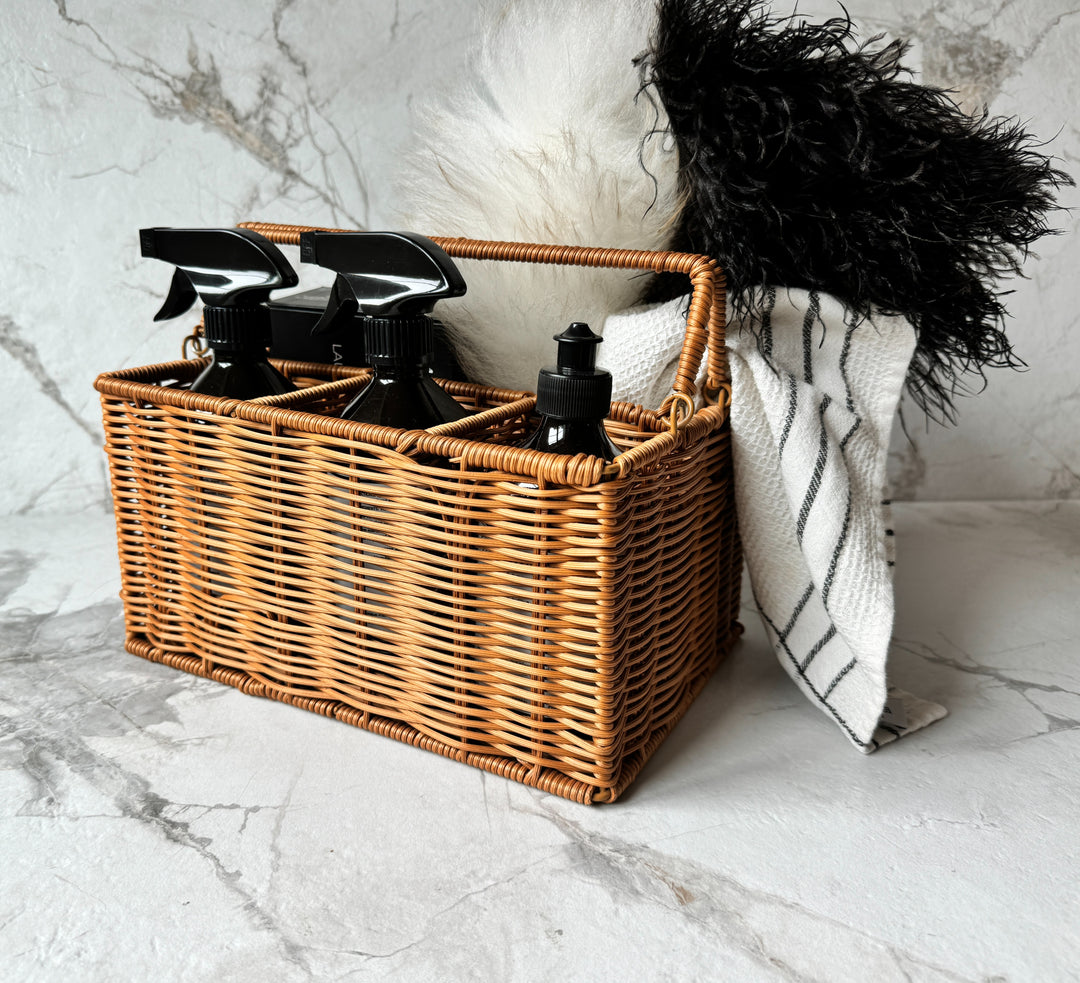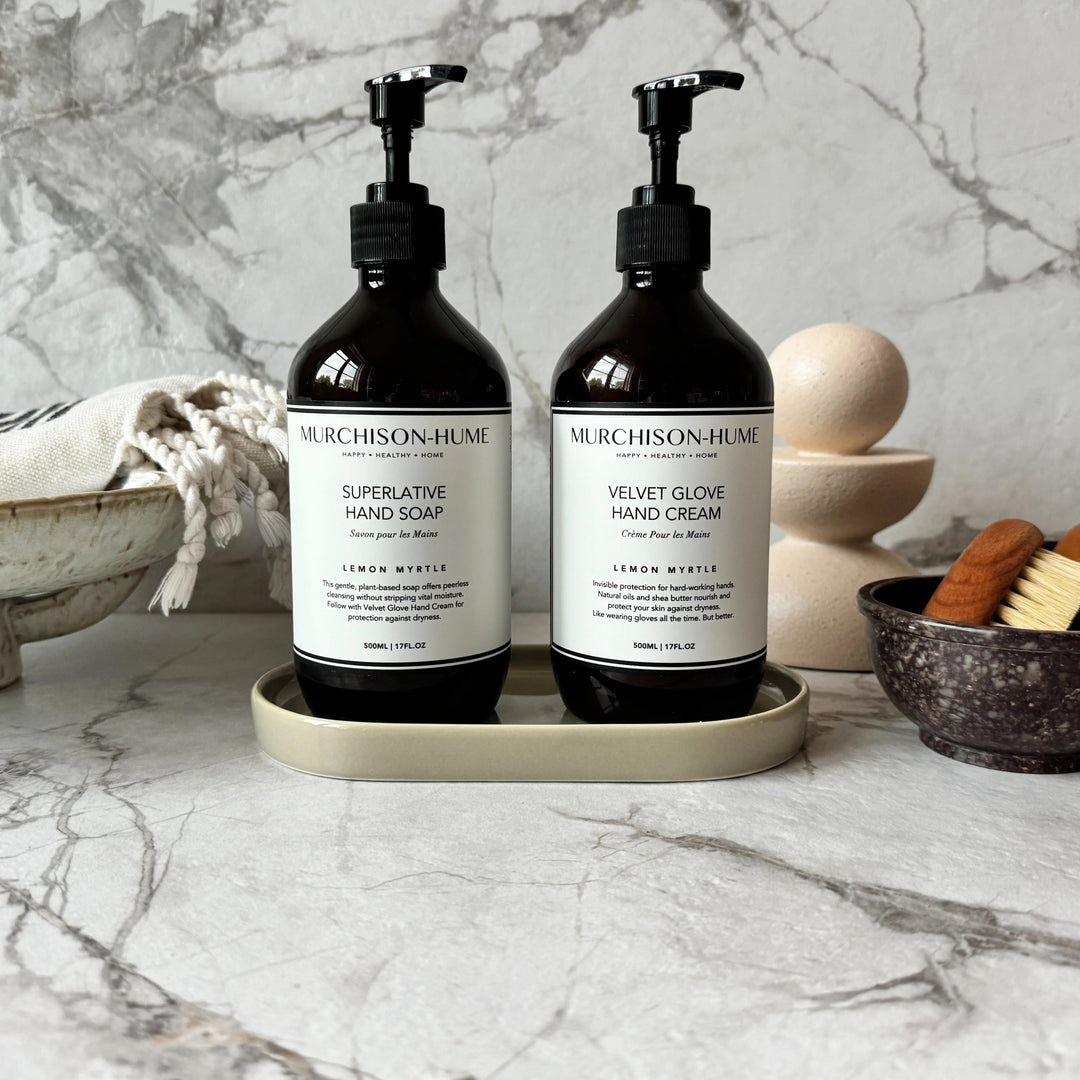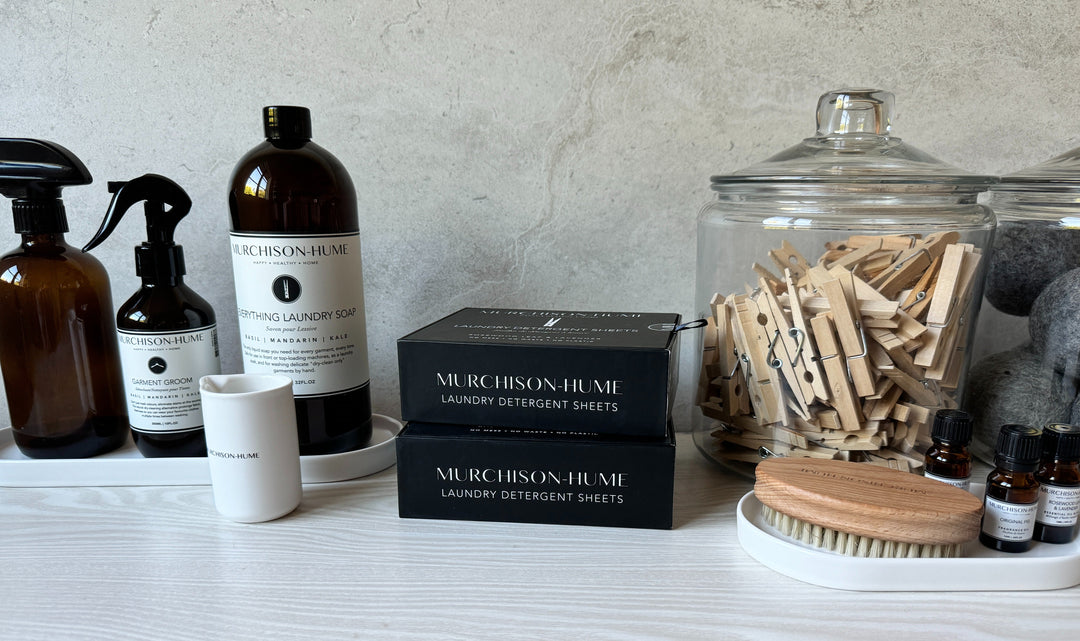We were never really a shoes-off household. My parents weren’t strict about taking them off outside, but we generally never got more than a few feet into the foyer without removing them by habit. Still, my mom never asked company to take their shoes off unless they wanted to, and if we had to run back inside to grab something we forgot—like our wallet or cell—it wasn’t a big deal if we wore them up to our bedroom.
| SHOP CLEANERS |
Outside clothes on the other hand—the phrase my mom used to describe an outfit that escapes the germ-free confines of our home—were strictly forbidden inside. It was a cardinal sin to sit on the couch in the jeans you wore on the bus—and don’t even think about throwing your coat or handbag on your bed unless you wanted to get scolded and forced to change the sheets.
But how bad are outside shoes and clothes, really? According to a 2015 study published in Microbiome that analyzed people's shoes after walking in various locations, researchers concluded that microbes like bacteria and viruses end up on shoes and rub off on other surfaces you walk on. While contaminated shoes aren’t likely to get you sick unless you have a toddler that routinely plays on the floor, you’re introducing germs into your home if you don’t take your shoes off before entering. Even more—if your shoes require you to use your hands to remove them, then you should also immediately wash your hands. (That’s a good general rule to observe any time you come home after being outside.)
You can disinfect your shoes with soap and warm water, but if you stepped in something questionable, it might be time to bring in the big guns with bleach. Additionally, many shoes are actually washing machine-safe: While canvas shoes and athletic shoes made with materials like nylon, cotton, and polyester are safe to wash in a washing machine, anything with leather or suede is a no-go. Our gentle Laundry Detergent was designed for hand-washing delicate garments, but can also clean other fabrics like silk, cotton, linen, and most synthetic materials.
As far as outside clothes go, my mom wasn’t exactly crazy to enforce her rule, but experts say probably wasn’t necessary: Certain bacteria can live on your clothes for weeks—and can contaminate your sheets and pillows. Still, these kinds of bacteria are often less likely to get you sick unless they’re present in small amounts, so it’s only really necessary to stop wearing your outside clothes inside unless it’s something that grosses you out.
One thing you *should* be concerned with, though? Many common allergens can land on your clothes and make their way into your home or your bed, Denisa E. Ferastraoaru, M.D., assistant professor of medicine in allergy and immunology and attending physician at Einstein/Montefiore and Jacobi Medical Centers, told SELF in September. The best way to handle this—especially during particular active allergy seasons—is to take your clothes off and wash them immediately. Leaving clothes in an open hamper, as well as rewearing anything saddled with allergens, can irritate any sensitivities.
There you have it: Outside shoes and clothes aren’t necessarily unsafe, but it’s probably a good idea to take them off anyway.
xx L







